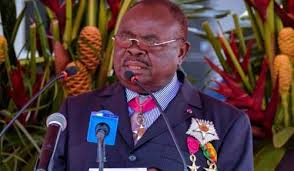
A long-running legal battle between the Société Civile Immobilière (SCI) Bonanjo and the Communauté Urbaine de Douala (CUD) has entered a new phase, raising fresh questions about property rights and the administration of justice in Cameroon.
The dispute centres on the CUD’s continued occupation of a building owned by SCI Bonanjo without a lease or rental payments. According to SCI Bonanjo, the situation has been marked by repeated procedural delays and evasions.
“A letter sent in April, unsigned, worthless, without even a postage stamp,” a representative of SCI Bonanjo said, denouncing what they described as an attempt to evade accountability.
The controversy escalated during a hearing on September 4, when CUD’s lawyers presented an unexpected argument, citing a “memorandum of understanding currently being finalised.” SCI Bonanjo’s team dismissed the claim, pointing out that a formal agreement had already been signed in August 2024, stipulating that the CUD must vacate the premises by December 31. An approval procedure was launched in November, yet the CUD allegedly failed to comply, maintaining occupancy in defiance of the contract.
Observers note that the case highlights the complexities of enforcing civil property rights when public entities are involved.
The court has now adjourned proceedings until October 2 for transmission to the Public Prosecutor’s Office, as provided under Article 36 of the Code of Civil and Commercial Procedure.
This step opens the door for a formal requisition, potentially reinforcing SCI Bonanjo’s claim and prompting the CUD to vacate the premises.
Legal analysts argue that the case provides an opportunity for Cameroon’s justice system to demonstrate its independence and ability to enforce property laws impartially. “The public prosecutor now has the perfect opportunity to remind everyone that you don’t turn someone else’s building into a Sunday family home,” said one observer.
For SCI Bonanjo, the October hearing represents a critical juncture. A ruling in their favour could finally bring an end to what they describe as years of procedural obfuscation, reasserting the principle that private property must be respected, even when a public institution is involved



